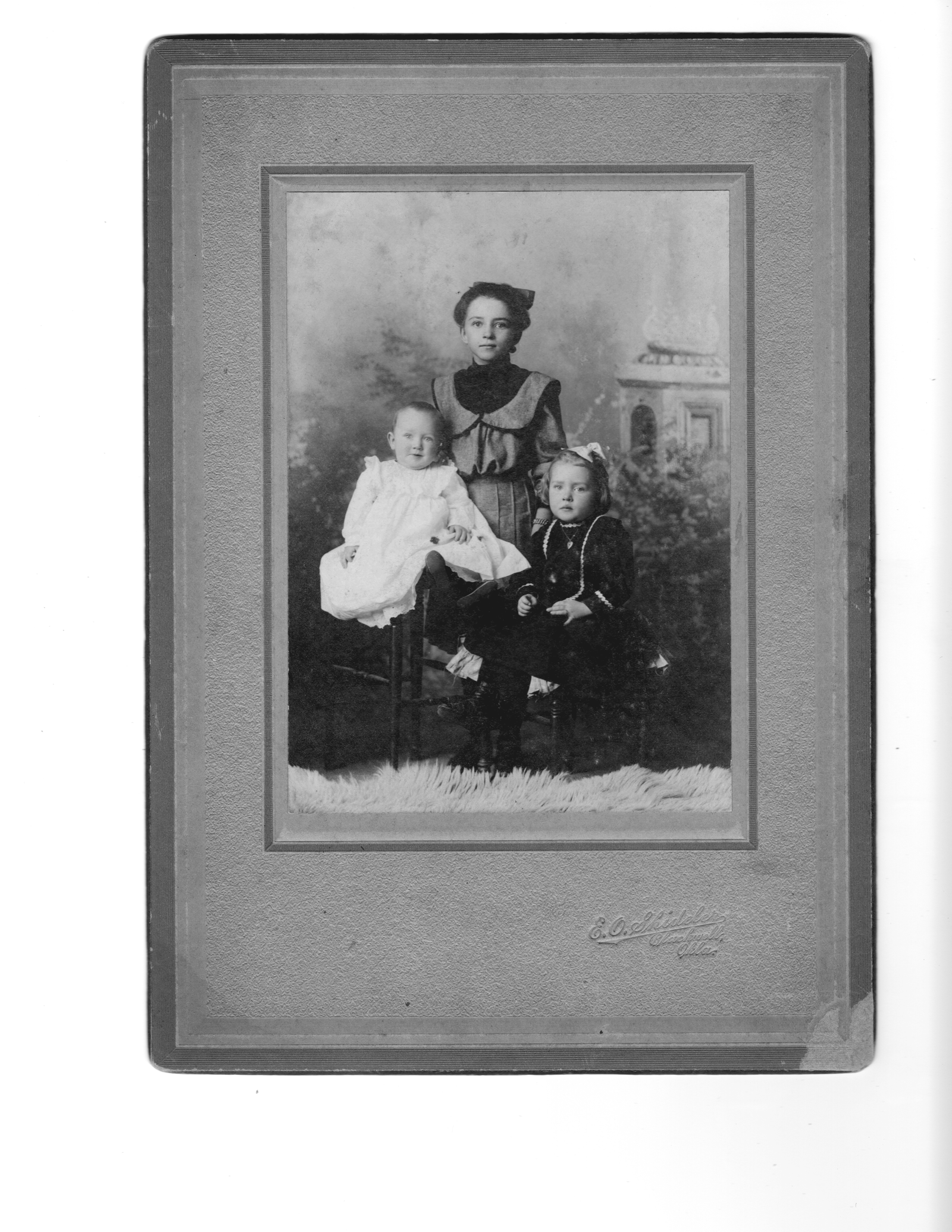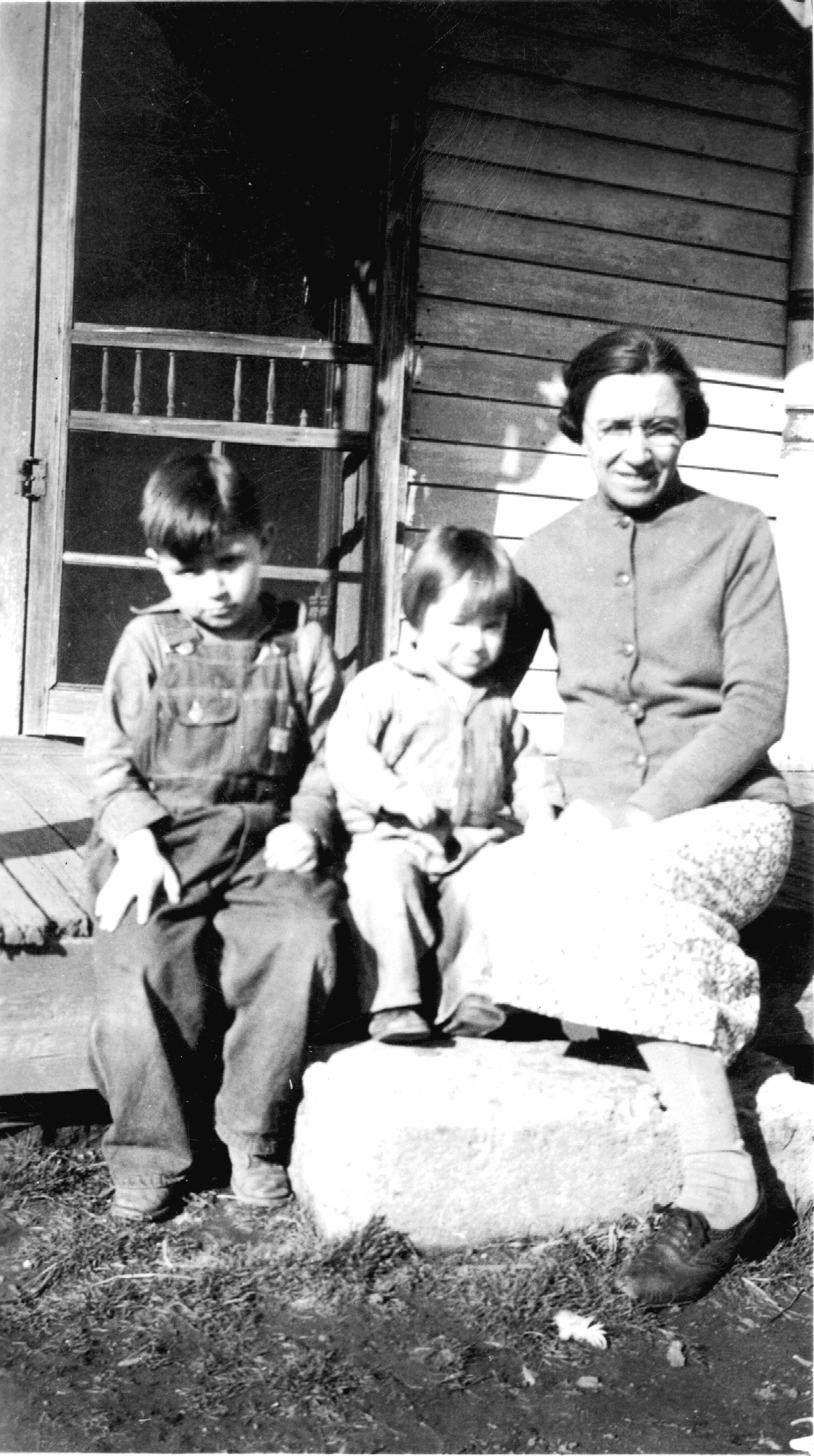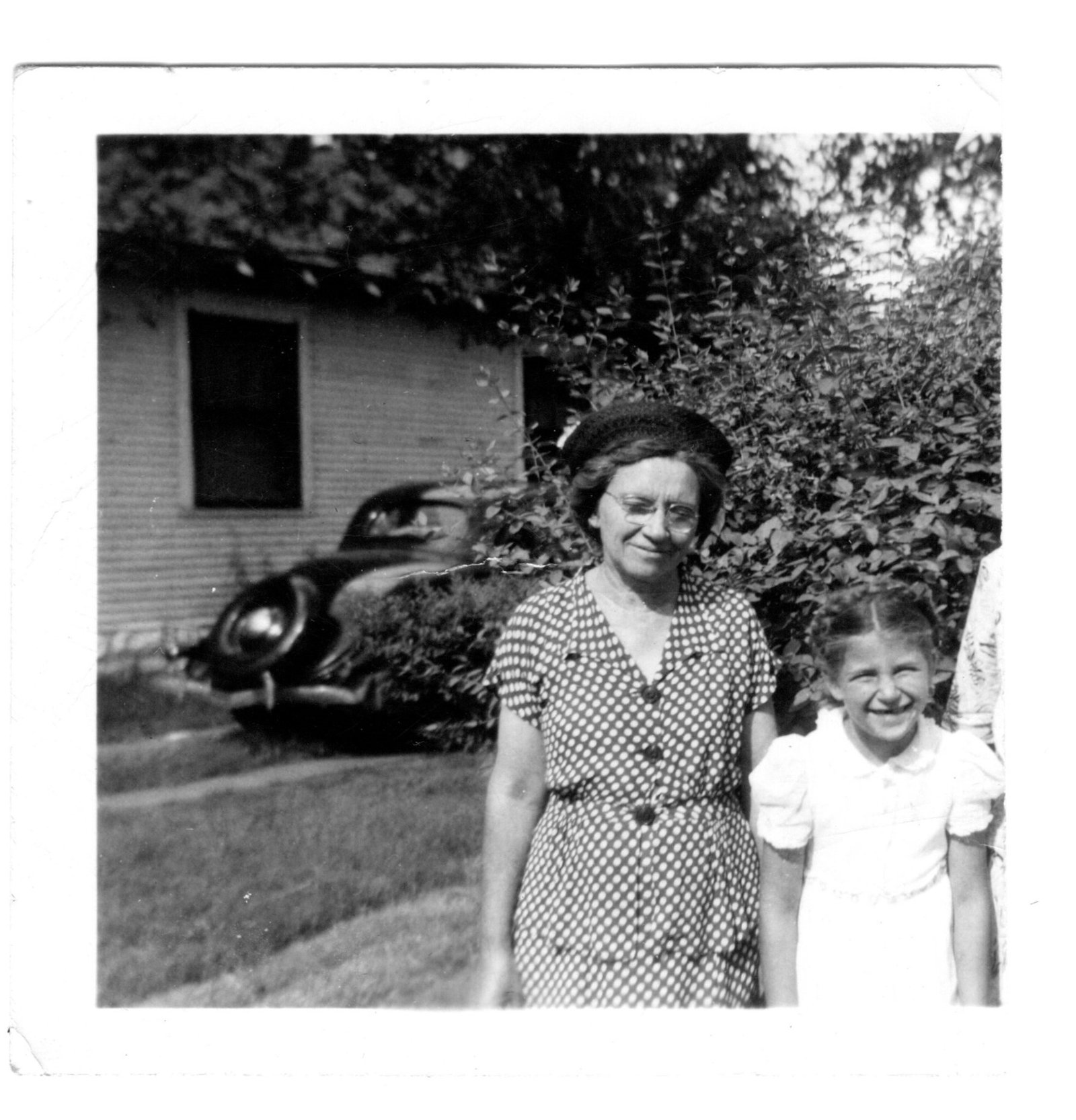This 1908 picture is of my mother, her older sister and her brother. Last blog’s mistake. The 1920 picture is of my father’s family.
My mother was born in 1897, two years after my grandparents were married and four years after my grandfather claimed his 160 acres during the opening of the Cherokee Strip to homesteaders. My mother and grandparents were true pioneers. After the opening of the Cherokee Strip, the town of Blackwell, Oklahoma, was built on land that had been reserved for that purpose. It was five miles from my grandfather’s farm. My grandparents’ first house had one room and a loft, but soon after my grandmother came, my grandfather built a much bigger house. When Mom was in her fifties, she wrote a brief autobiography of her early life for the Blackwell Historical Society. Her stories are more than I can relate here, but one of them was about the school she went to as a child in rural Oklahoma in the very early part of the twentieth century. It was a one-room school built by the local farmers. It was for the first through eighth grades, but some of the students were as old as twenty. Before 1900, schooling couldn’t be taken for granted like it can today, and the older students simply hadn’t had the chance to attend school before. The school was the center of the local social life and was sometimes used for adult meetings. On Sundays, it was used as a church. In farming communities, it has always been a tradition to help your neighbors when they were in trouble. Once, when my grandfather was sick during harvest time, the neighbors came and did the harvesting. The women brought food, and everyone had a big picnic. With the big corporate farms of today, I’m afraid we’ve lost that tradition. After my aunt Florence was born in 1905, the family moved to Blackwell so the children could attend school there, but my grandfather continued to farm. Oklahoma became a state in 1907, fourteen years after my grandfather staked his claim.
Mom was a very calm and gentle woman. She was also very resourceful and knew how to make do with what she had. Even my grandmother marveled at how patient she was when we would gather in the kitchen and talk, often all at once, about our day at school. Like Dad, she also worked very hard and was quite religious. Like most mothers at that time, she took care of the household and children and, with the help of the children, the garden. She made sure the girls did their jobs while Dad ruled over the boys. When I was old enough to remember, a typical weekday for my parents started at 5:00 o’clock. Mom made breakfast for the two of them and fixed Dad’s lunch while Dad milked our cow and did other chores. When Dad left to go to work at the Coleman Lamp and Stove Company (now Colemans) in Wichita, Mom made lunches and breakfasts for the children. After we left for school, Mom would relax and have her coffee. She would always have her coffee. Then she would do laundry for a large family, clean, iron, sew or do other things that needed to be done. When Dad came home, he and the boys milked the cow, fed the pig (when we had one) and fed and watered the chickens (that was my job). Mom and the girls fixed dinner. After dinner, Mom and the girls cleaned up and Dad relaxed and read the papers. Then the children had time to listen to the radio or play. My parents would go to bed around nine, but the older children might stay up for a while.



